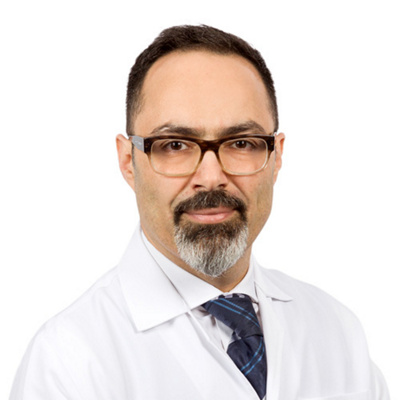In Mediclinic Welcare Hospital, we are proud to have a dedicated team for sleep disorders with a sleep consultant and technical sleep lab support.
Obstructive Sleep Apnea (OSA) is a widely prevalent and under diagnosed condition worldwide, and in the Middle East in particular. Part of the rising incidence of the condition is obesity, while lack of recognition and awareness is the main reason why it is still under diagnosed and under treated. In simple terms, the condition can range from mild snoring to severe obstructive apnea where the patient completely stops breathing hundreds of times per night, to the point where oxygenation of the blood is affected. When this is present for a long time, the patient is at increased risk for developing many health related complications, including but not limited to: hypertension, glucose intolerance and diabetes, coronary artery disease, strokes, cardiac rhythm abnormalities and even sudden cardiac death in severe cases.
The first step of the treatment is recognising and diagnosing the condition. This is done by referring the patient a sleep specialist who is trained and licensed in the field of Sleep Medicine. The diagnosis is confirmed by doing a sleep study, either as an inpatient (preferable because of the completeness of the information gathered) or as an outpatient (done at the patient’s home in their own bed, which is usually the second option due to the limitation of the information gathered).
Once a sleep test is done, the sleep expert will read and analyse the data and provide a diagnosis. Based on the severity of the disease, many options for treatment are available which range from a device that the patient can wear during sleep to surgery in a very minute number of cases.
OSA is a completely treatable disease as long as the patient complies with the treatment and recommendations.
All patients with sleep disordered breathing including OSA are educated regarding weight loss, sleep hygiene practices and aerobic exercise which have consistently shown to improve the severity, and in some cases eliminate the disease completely without the need for any further intervention.


